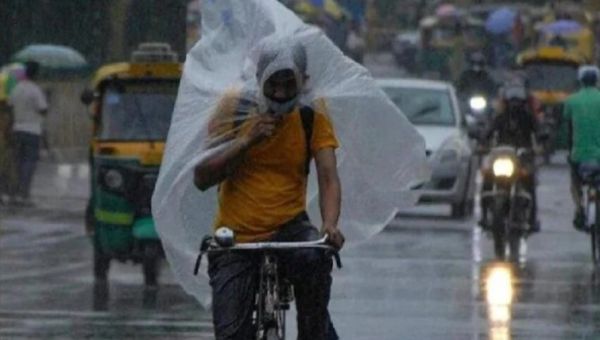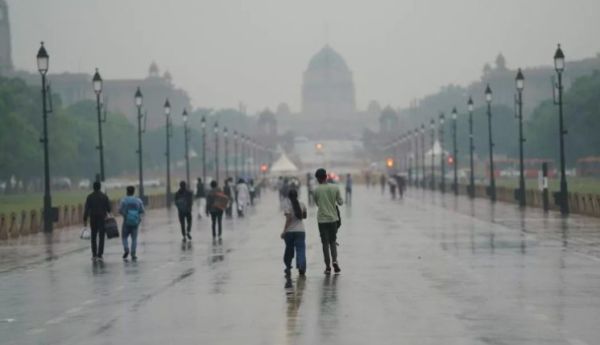
Across every culture, in every era, humanity has prayed for peace. We build temples of silence, chant sacred verses, release white doves, and teach our children that peace is the noblest pursuit.
And yet, history reads like a catalogue of conquest.
We name cities after emperors, not monks. We revere revolutionaries more than reformers. We arm ourselves with weapons we hope never to use, while silently preparing to.
There lies the contradiction that defines not only our societies, but our very nature:
We seek peace — but we worship power.
This isn’t merely hypocrisy. It is the result of a long and complex human story — one where the soul and the survival instinct have been pulling in opposite directions for thousands of years.
1. Peace Is the Desire of the Soul — Power Is the Demand of Survival
 At the deepest level of human consciousness, peace is our most natural state. Infants are born with no desire to dominate. The spiritual traditions of nearly every civilization — from the teachings of the Buddha to the Sermon on the Mount to the Upanishads — speak of stillness, surrender, and inner harmony.
At the deepest level of human consciousness, peace is our most natural state. Infants are born with no desire to dominate. The spiritual traditions of nearly every civilization — from the teachings of the Buddha to the Sermon on the Mount to the Upanishads — speak of stillness, surrender, and inner harmony.
But peace doesn’t ensure survival. Power does.
From the moment human tribes began competing for land, food, or safety, power became a biological need. The strong lived. The weak didn’t. And as generations passed, power became not just a necessity — it became a virtue.
So while we may spiritually crave peace, evolutionarily, we’ve been wired to admire strength. That’s why warriors are honoured more than poets, and empires remembered longer than peacemakers.
2. Our Religions Preach Peace — But Their Gods Often Wield Weapons
 Every major religion speaks of peace — but look at their symbols.
Every major religion speaks of peace — but look at their symbols.
Krishna holds a Sudarshan Chakra. Jesus, though crucified, is often depicted as returning in Revelation with a sword. Prophet Muhammad is remembered both as a prophet and a military leader. Shiva, the ascetic, carries a trident. Even the Buddha had to be protected by kings.
We forget: Peace in scripture is rarely passive. It often arrives after power is asserted.
Why? Because even divine peace needs a protector. In Hindu philosophy, Vishnu doesn’t just preserve dharma — he takes on terrifying forms when evil grows unchecked. The idea is clear: Peace cannot survive in a world that doesn’t respect its boundaries. And that respect comes — ironically — from the fear of power.
So when we say we worship God, we often unconsciously also worship might.
3. Modern Nations Speak of Diplomacy — While Spending Billions on Weapons
 Every country signs treaties, attends peace summits, and delivers speeches about international cooperation. Yet global military expenditure reached over $2.2 trillion in 2024.
Every country signs treaties, attends peace summits, and delivers speeches about international cooperation. Yet global military expenditure reached over $2.2 trillion in 2024.
Why?
Because no nation truly trusts another. Power is the insurance policy. Nations don’t pray for peace — they prepare for war, and only then feel secure enough to speak of peace.
Consider nuclear weapons. We call them “deterrents,” not “threats.” The logic is twisted but clear: The power to destroy the world is what keeps the peace intact.
The global order is not based on moral restraint. It’s based on mutually assured destruction.
So we build stronger armies and smarter bombs — and then hold hands at UN forums.
4. Social Media Loves Peace Quotes — But Follows Powerful Personalities
 You’ve seen it: Gandhi’s quote shared by the same influencer who mocks their critics mercilessly. Peaceful slogans on timelines full of conflict, cancel culture, and domination narratives.
You’ve seen it: Gandhi’s quote shared by the same influencer who mocks their critics mercilessly. Peaceful slogans on timelines full of conflict, cancel culture, and domination narratives.
Why?
Because social media doesn’t reward calm — it rewards control.
The loudest voices trend. The most controversial takes get attention. Followers gravitate to those who assert dominance, not nuance. And so even in the digital world, where information could have been used for harmony, we use it to build power — social, financial, or cultural.
The message is clear: Even online, we secretly admire those who conquer — not those who retreat.
5. Even in Personal Life, We Fear Vulnerability More Than Conflict
 Why are peaceful people often dismissed as “weak”?
Why are peaceful people often dismissed as “weak”?
Because in our relationships, workplaces, and societies, peace is seen as submission. Assertiveness is celebrated, even if it disrupts harmony. People are taught to “stand their ground,” “win arguments,” “never back down.”
This creates a world where peace is not the absence of conflict — but the silence of exhaustion.
So we teach our children negotiation, not surrender. Strategy, not serenity. We tell them to forgive, yes — but also to “never forget.”
In this way, even at the micro level, we worship power — and only pretend to love peace.
6. The Truth: We Don’t Want Peace — We Want Victory Without Violence
 Here’s the uncomfortable truth: We don’t want real peace. We want comfort. We want security. We want our side to win — and for the enemy to disappear peacefully.
Here’s the uncomfortable truth: We don’t want real peace. We want comfort. We want security. We want our side to win — and for the enemy to disappear peacefully.
Peace is only appealing when it doesn’t ask us to sacrifice our pride, our territory, our worldview.
This is why conflicts last generations. Each side prays for peace — but only on
their terms. So peace becomes conditional. And power becomes the means to achieve those conditions.
The result? We chase peace using the tools of power — which only makes real peace impossible.
7. The Cost of Worshipping Power: Eternal Restlessness
 Power is never satisfied. Once gained, it needs to be maintained, defended, expanded. Empires fall not from weakness — but from the endless hunger for more.
Power is never satisfied. Once gained, it needs to be maintained, defended, expanded. Empires fall not from weakness — but from the endless hunger for more.
This is true in personal life, too. The powerful live in constant fear — of losing relevance, of being challenged, of being dethroned.
In contrast, true peace asks for surrender — of ego, of desire, of the need to be right or remembered. It is harder, quieter, and deeper. But it’s also liberating.
You don’t conquer peace. You become it.
Can We Choose Both — Peace with Power?
We pray for peace because our soul knows that only stillness can heal us. But we worship power because we think only strength can protect us. The result is a species that dreams of nirvana while building nuclear warheads — a society that quotes the Buddha but elects the boldest speaker.
The path ahead is not easy.
It asks us to be honest — about our values, our fears, and our contradictions. It asks us to remember that peace is not weak, and power is not always right.
Because peace is not the absence of power.
It’s the mastery of it.
And only when we stop worshipping power for its own sake — and begin using it to protect, not control — will we deserve the peace we so often pray for.
-
Nico Williams latest as Arsenal make transfer decision amid Barcelona, Bayern Munich ‘interest’ in winger

-
Today’s transfer news and rumours: AC Milan eye Granit Xhaka move, Aston Villa willing to sell Jacob Ramsey in £40m deal

-
19 June 2025: Monsoon active in many states of the country, expected to enter UP in the next 24 hours

-
Delhi Weather: Will Delhi’s weather deceive you again? IMD’s prediction failed… Know when it will rain…

-
UP Weather: Monsoon to arrive in UP from June 19, alert for strong winds, thunderstorms and heavy rains
